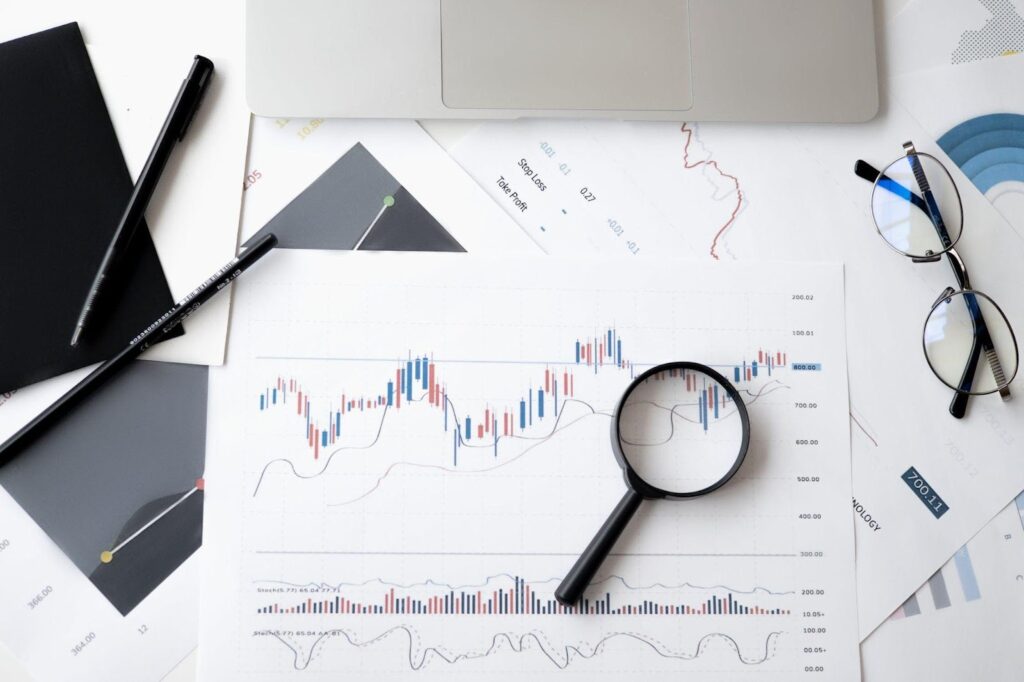Trading has undergone a significant transformation over the past few decades. This metamorphosis has been driven largely by advancements in technology, facilitating newer, more efficient strategies in the marketplace.
From the rapid-fire execution of algorithmic trading to the predictive prowess of artificial intelligence (AI) strategies, technology has permanently altered the tapestry of the trading landscape. With that, this article will look at the different ways technology is shaping today’s trading market.
Unpacking Algorithmic Trading
At its core, algorithmic trading, often referred to as automated or algo-trading, is the process by which computer programs are used to execute trading orders. These programs make decisions based on predetermined criteria, like timing, price, and volume, thereby eliminating the need for human intervention in each trading decision.
Born from the technological advancements of the late 20th century, algorithmic trading has revolutionized the trading sphere. It pioneered an era of unerring precision, lightning-fast speed, and unmatchable efficiency in the execution of trades.
Advantages and Challenges of Algorithmic Trading
The advent of algorithmic trading has conferred a plethora of benefits on traders, making it a crucial tool for achieving financial independence through stocks. It allows traders to backtest their strategies using historical and real-time data before they risk any actual capital. The automation process also minimizes the possibility of human errors that stem from emotional and psychological factors.
Moreover, algorithmic trading contributes to improved market liquidity and mitigates the cost of trading by reducing the impact of trades on the market price.
Despite these notable advantages, algorithmic trading is not devoid of challenges. Potential system failures, the risk of over-optimization, and the rapid amplification of trading errors due to the speed of trade execution are significant concerns to consider.
Exploring Algorithmic Trading Strategies
The world of algorithmic trading is rich and diverse, offering a wide range of strategies for traders to employ.
High-frequency trading, for instance, leverages the power of advanced computers to execute a vast number of orders at extremely high speeds.
Another prevalent strategy is statistical arbitrage, which utilizes mathematical models to identify and capitalize on statistically significant market inefficiencies or price disparities.
The Role of Artificial Intelligence in Trading
From healthcare to real estate, artificial intelligence has revolutionized numerous industries. Trading is another prime example of AI’s transformative power. AI in trading refers to the use of advanced machine learning algorithms to analyze complex and voluminous market data, identify hidden patterns, and even predict future trends.
In the wake of the AI revolution, there’s been a growing interest in investing in AI-related stocks. Many investors, captivated by the increasing popularity and potential of AI, have sought to invest in Open AI stocks, spurred by the rise of its AI model, ChatGPT. However, OpenAI is not a publicly-traded company, which has left investors exploring alternative avenues to capitalize on the AI trend.
One such promising route is through Google stocks. Google has a leading 92.82% market share among search engines, making it promising. Its prominence is not just confined to the realm of search engines; it also stands at the forefront of AI innovation. Google’s parent company, Alphabet Inc., houses Google Brain and DeepMind, two of the most advanced AI research labs in the world.
Impact and Challenges of AI in Trading
Integrating AI into trading strategies has the potential to significantly bolster profitability. It can provide insightful real-time analytics and automate the decision-making process, thereby enabling traders to react swiftly to market changes.
However, AI trading, like its algorithmic counterpart, comes with a set of challenges. Overfitting data, where an AI model tailors itself too closely to historical data and fails to predict future trends accurately, is a prevalent issue. Also, the intricacy involved in developing robust and reliable AI models can be daunting.
Decoding AI Trading Strategies
Several AI-based strategies have permeated the trading landscape, with machine learning and neural networks at the forefront. Machine learning models possess the ability to learn from past data, adapt to market changes, and forecast future market trends with impressive accuracy.
On the other hand, neural networks, designed to mimic the human brain’s functioning, can identify complex patterns within vast datasets. Their ability to recognize these patterns gives them a distinct edge in predicting market movements, thereby providing traders with potentially lucrative trading opportunities.
Tips and Tricks for Utilizing Algorithmic Trading and AI
Success in this arena demands a strategic approach, continuous learning, and a knack for adaptability. Whether you’re a seasoned trader exploring these technologies or a novice venturing into the vibrant world of modern trading, here are some invaluable tips to help you effectively use algorithmic trading and AI in your trading strategy.
Begin with a Solid Understanding
Grasp the basics before diving headfirst into the complex world of algorithmic trading and AI. Comprehend the principles of financial markets, trading mechanisms, programming, and data analysis. This understanding will provide a solid foundation, enabling more effective use of these advanced technologies in trading.
Opt for Reliable Data
Quality data is the lifeblood of both algorithmic trading and AI. The effectiveness of your trading strategy largely depends on the reliability and accuracy of the data you use. Hence, always opt for trusted data sources and ensure you use data that is clean, accurate, and relevant to your strategy.
Test Before You Implement
Always backtest your trading strategies before you implement them. Backtesting allows you to evaluate the feasibility and effectiveness of your strategy using historical data, thereby enabling you to tweak and optimize the strategy before real-world implementation.
Embrace Diversification
Diversification is key in the world of trading. When implementing AI and algorithmic trading, don’t rely solely on one strategy or market. Spreading your investments across various strategies and markets can help reduce risk and increase the potential for returns.
Stay Updated and Adaptable
The financial markets and technological landscapes are continually evolving. To stay competitive, traders should continually update their knowledge and adapt their strategies to align with these changes. Regularly revising your strategies, learning about the latest technological advancements, and adapting to new trends and market changes can enhance your trading success.
Manage Risks Effectively
Even with the most advanced strategies, trading involves risk. It’s crucial to implement effective risk management practices, like setting stop losses and limiting the size of your trades. These practices, when coupled with AI and algorithmic trading strategies, can help mitigate potential losses.
Understand the Regulatory Landscape
Compliance with regulatory requirements is essential in trading. Keep abreast of the regulatory landscape in the regions where you trade, understand the legal implications of your trading activities, and ensure your trading strategies are compliant with relevant regulations.

The advent of algorithmic trading and AI strategies has marked a turning point in the world of trading. From enhancing market efficiency to reshaping the trading profession, the impact of these technologies is far-reaching.
As they continue to evolve and mature, they are expected to play an even more significant role in shaping the future of trading. The challenges they pose, while significant, present opportunities for growth and improvement in this exciting field.





